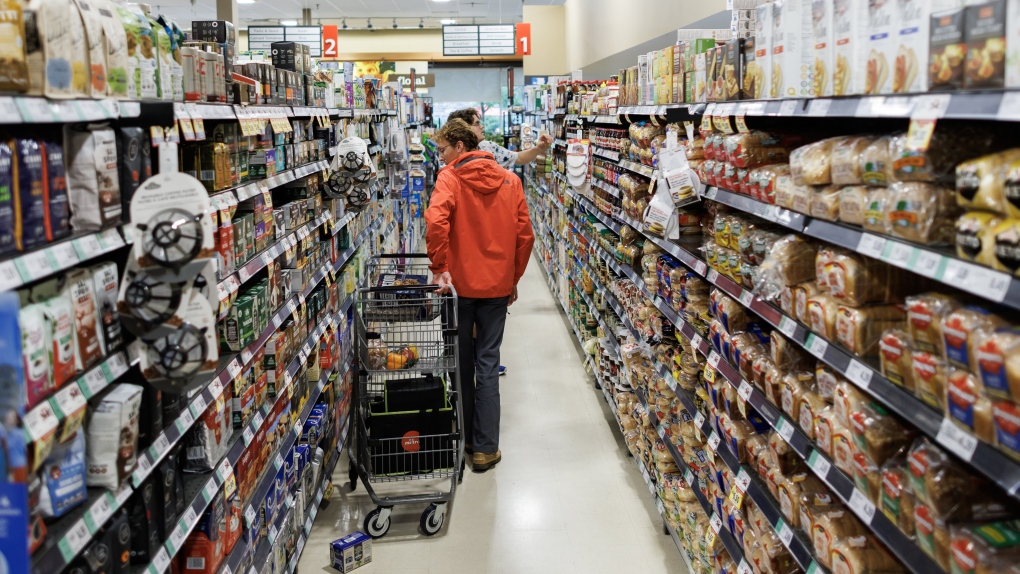Consumer Reports has found that plastics retain a “widespread” presence in food despite the health risks, and called on regulators to reassess the safety of plastics that come into contact with food during production.
The non-profit consumer group said on Thursday that 84 out of 85 supermarket foods and fast foods it recently tested contained “plasticizers” known as phthalates, a chemical used to make plastic more durable.
It also said 79% of food samples in its study contained bisphenol A (BPA), another chemical found in plastic, and other bisphenols, though levels were lower than in tests done in 2009.
Consumer Reports said none of the phthalate levels it found exceeded limits set by U.S. and European regulators.
It also said there was no level of phthalates that scientists confirm is safe, but that does not guarantee the safety of foods you eat.
We all look back at how they used to have asbestos in the walls, or lead in paint and gasoline, and how stupid we were.
Future scientists will look back at this era as the micro plastics era
What future scientists?
🫸Aliens🫷
My doctor told me yesterday that it was already in all our bloods. Says they know it will effect our health badly just not sure how yet.
We need to end the use of plastic.
They’ve even found it in fetuses. I’m convinced that microplastics will wipe out humanity before climate change does by lowering the birth rate to an unsustainable level.
Agreed. We never wanted plastic in the first place. Government allowed/allows industries to force it on us by removing non-plastic options.
Except LEGO.
Oh shit! But I understand they are working on a other solution to plastics just haven’t cracked it yet.
I honestly find it very difficult to imagine what a modern-ish world without plastics would even look like. We’d need to find replacements for so many ubiquitous things, and not just convenience items, but important things like PCBs and medical supplies.
Wr can’t. It would kill millions. Not that that even matters, because it’s profitable.
We could do a lot of good by outlawing plastic bags and bottles. Those two alone We can do and use alternatives with no consequences. It also be two of the biggest plastic waste contributors.
*and PFAS
Not to downplay the importance of their findings, but they didn’t find PLASTIC in food, instead they detected chemicals commonly found in plastic.
Interesting that it’s BPA, since the food industry allegedly removed BPA from their packages/cans years ago. Did they add it back when nobody was looking?
the food industry allegedly removed BPA from their packages/cans years ago
Even if they removed BPA entirely from consumer packaging, these are mostly or entirely processed / manufactured foods being discussed.
The chemical exposure could be coming from equipment used during the production process, from non-consumer packing/shipping of raw ingredients, and possibly even during the agricultural production stage. For example, if there’s BPA in the plastics that foods come into contact with during the cooking or cooling phase (i.e. from silicone mats) it may leach into the food. Or if the food dyes in the products come to the manufacturers in packaging that contained BPA, it’s a potential source of contamination. Also, modern agriculture is heavily reliant on plastics, so it’s possible that these chemicals enter the products as a result of those practices.
Obviously I don’t know for sure and I would almost bet that the source of contamination is different for different products, so there may not even be one right answer that covers it all.
That completely makes sense. I guess the push to remove BPA from food packaging was only half the story, and more could have been done if we knew about it. What a shame. So many of us spent a premium on BPA-free products, buying glass jar goods instead of canned, etc…
They didn’t change much.
Not a scientist, and can barely remember the details, buuuut…
Dropping BPA didn’t remove the issue. Manufacturers just moved on to other untested plasticizers, such as BPAF, or BPF, or BPS.
All that marketing - and it went into telling us that the product didn’t contain BPA, while ignoring that the products contained chemicals that were potentially worse!
Bisphenol compounds are used to make plastic more rigid/durable, but on the other side of it, are phthalates, which are generally used for pliability.
And this is where the “not a scientist” part shows heavily.
I don’t know if we can make plastics safe for use within our food chain. Both plastics and biological entities are carbon-based (most plastics come from crude oil), and the way we act on those is via cyclic compounds, and so chemicals that act on or modify plastics and humans are often structurally similar. Most medicines are cyclic compounds. Even sugar (glucose) is a cyclic compound.My understanding is minimal, but my hunch is that there’s basically no safe way to retain the usefulness of plastics as they relate to food.
Whelp, time to start avoiding… “food” then.
Yep, and, per the article, stick to the ONLY healthy choice: polar raspberry lime seltzer!
🎉🎉🎉APOCALYPSE PARTY 🎉🎉🎉
Thank fuck for polar being in the clear since I subsist almost entirely on polar seltzer
Nope, I choose death instead. So… 🎉🎉🎉funeral party🎉🎉🎉!:-P
US Govt:

Micro plastics are in the rain, your bloodstream, every inch of the ocean. I’m not surprised they’re in every food product as well.
I’m not sure of the reputation of CTV News Canada but this headline is trash. How can you enclose the words “plastics retain a “widespread” presence in food” with a link to the source material that clearly does not say that. The article itself goes on to quote Consumer Reports without mentioning plastics.
Here’s a better summary;
The non-profit consumer group said on Thursday that 84 out of 85 supermarket foods and fast foods it recently tested contained “plasticizers” known as phthalates, a chemical used to make plastic more durable.
Among tested supermarket foods, Annie’s Organic Cheesy Ravioli contained the most phthalates in nanograms per serving, 53,579, followed by Del Monte sliced peaches and Chicken of the Sea pink salmon.
Elevated phthalate levels were also found in products such as Cheerios, Gerber baby food and Yoplait yogurt, and several burgers, nuggets and fries from Wendy’s, Burger King and McDonald’s.
Consumer Reports said none of the phthalate levels it found exceeded limits set by U.S. and European regulators.
It also said there was no level of phthalates that scientists confirm is safe, but that does not guarantee the safety of foods you eat.
Phthalates and bisphenols can disrupt the production and regulation of estrogen and other hormones, potentially boosting the risk of birth defects, cancer, diabetes, infertility, neurodevelopmental disorders, obesity and other health problems.
The Consumer Reports article is pretty good. It goes on to explain how both plasticizers and plastics get into our food system and bodies then provides the phthalate value (nanograms per serving) of each supermarket and fast food they tested.
There’s also a CR petition to get plasticizers out of food. https://action.consumerreports.org/cro-20240108-phthlates
CTV headline:
Consumer Reports finds ‘widespread’ presence of plastics in food
CR headline:
The Plastic Chemicals Hiding in Your Food
CR headline wins for nuance, inarguably, yes. CTV headline fits the takeaway soundbite for the average consumer.
Average Joe understands “plastic” better than “plasticizer”, and certainly better than “bisphenols & phthalates”. A rallying call to “get plastic out of our food” should be as if not more likely to eventually reach target groups (politicians & manufacturers).
Well, I did think of one problem. You don’t want labels that claim “plastic free“ when they still contain dangerous plastic-related chemicals.
a plasticizer in food indicates its property - like how emulsifiers are added, etc.
it’s clickbait








